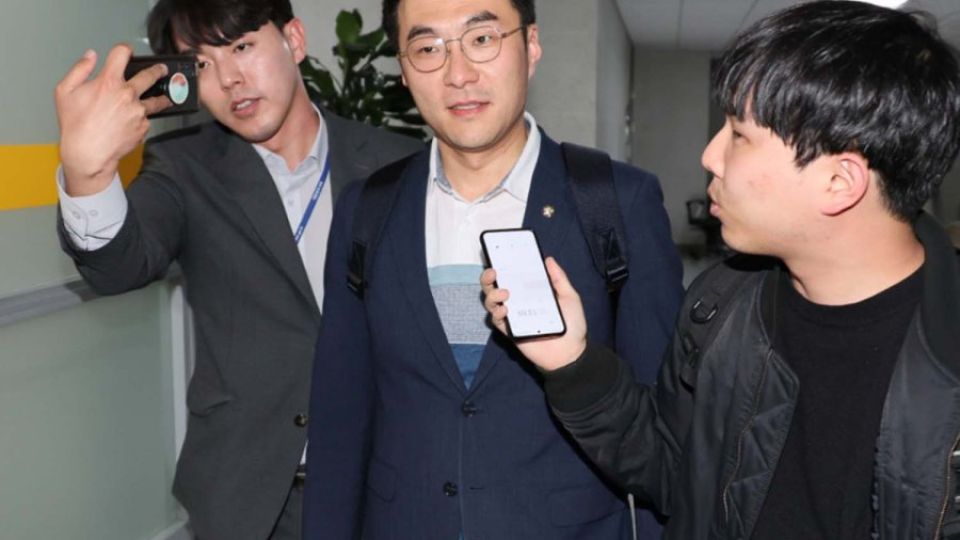July 27, 2023
SEOUL – In mid-May, Rep. Kim Nam-kuk left the main opposition Democratic Party of Korea after revelations that he had been engaged in suspicious cryptocurrency transactions. But the dispute over the crypto investment is still playing out at the National Assembly — in an ugly way.
There are two interconnected developments that can significantly affect public opinion. First, 11 lawmakers were found to have held virtual assets amid mounting speculation that some of their trades might have caused a conflict of interest in their duties as public servants.
Second, an advisory panel of the parliamentary ethics committee recommended that independent lawmaker Kim be removed from his parliamentary seat over his dubious crypto holdings, but the Democratic Party is reluctant to follow the panel’s recommendation to take the most severe disciplinary action against its former member.
The crypto scandal is now spreading far beyond Kim to other members of the National Assembly. The 11 lawmakers — including Kim — voluntarily submitted their virtual asset holdings since May 30, 2020, to the parliamentary ethics committee.
The move came after the National Assembly passed revision bills aimed at including crypto holdings in the annual asset disclosure of lawmakers and high-ranking public officials.
As the advisory panel of the ethics committee disclosed the details of the lawmakers’ crypto trades and holdings to the press, rival parties are now staging a new round of confrontation after some of their lawmakers traded and held crypto assets in a way that raised suspicion about the conflict of interest.
On Wednesday, the Democratic Party said it would refer Unification Minister Kwon Young-se, a member of the ruling People Power Party, to the parliamentary ethics committee for engaging in crypto trading.
Rep. Kwon Chil-seung, chief spokesperson of the Democratic Party, argued that the unification minister traded cryptocurrencies multiple times during working hours, which could be in violation of the rules regarding the conflict of interest.
Minister Kwon, however, denied any wrongdoing and claimed that he did not conduct trades while attending a plenary session or other parliamentary meetings.
In addition to the unification minister, other high-ranking members of the People Power Party were found to have traded crypto assets. Rep. Kim Hong-gul, who recently rejoined the Democratic Party, was also among the 11 lawmakers whose trade records were made known through the press.
Rep. Kim claimed that he traded virtual assets in order to secure inheritance taxes.
“The lawmakers who submitted their records voluntarily are being unnecessarily misunderstood,” Kim said.
But the advisory panel said that at least five of the 11 lawmakers might have breached the conflict of interest rule by carrying out more than 100 trades in excess of 10 million won ($7,816). According to the advisory panel, Minister Kwon and Rep. Kim Hong-gul traded more than 1 billion won worth of crypto by engaging in about 400 and 100 transactions, respectively.
Against this backdrop, some experts and civic groups argued that a voluntary disclosure is ineffective, as only 11 members out of 299 lawmakers submitted records. To address the issue, they call for a formal parliamentary move to check and disclose the full crypto-related transactions of all lawmakers.
Meanwhile, the Democratic Party is struggling with the issue of handling its former member Rep. Kim Nam-kuk, who is found to have conducted over 200 crypto trades while attending parliamentary committee meetings. He also held cashable assets in his cryptocurrency wallets that amounted to around 9.9 billion won in late 2021, despite his self-promotion of a frugal image.
Despite the advisory panel’s recommendation for Kim’s expulsion, the Democratic Party is demanding a “careful approach,” considering the fairness related to other lawmakers who traded crypto assets. The expulsion needs over 200 votes at the National Assembly where the People Power Party has 112 seats and the Democratic Party holds the majority with 168 seats.
The rival parties and lawmakers must realize the public is increasingly becoming disappointed with one revelation after another related to their suspicious crypto transactions. They should opt for a full disclosure of crypto holdings of all lawmakers. And the Democratic Party has to make a right decision over the expulsion of Kim without delay.


